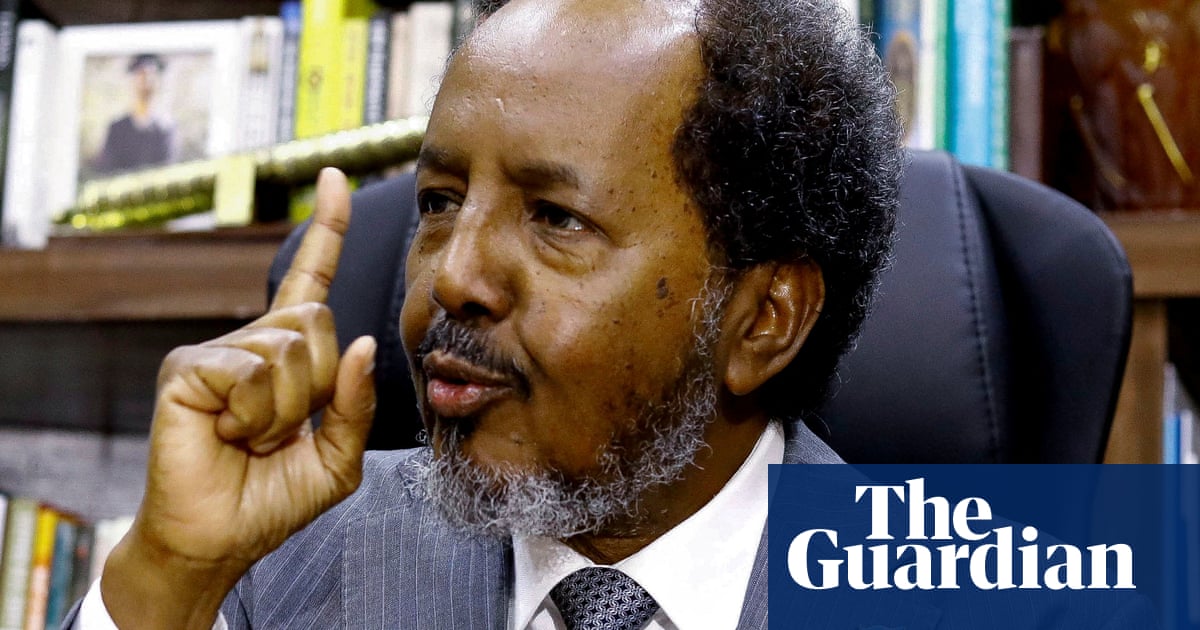Somalia and Ethiopia have agreed to restore diplomatic representation in their respective capitals, more than a year after Somalia severed ties over a sea access agreement landlocked Ethiopia signed with the separatist northern Somali region of Somaliland.
In a joint statement after an unexpected visit by Somalia’s president, Hassan Sheikh Mohamud, to Ethiopia’s capital, Addis Ababa, both countries committed to “restore and enhance bilateral relations through full diplomatic representation in their respective capitals”.
Ethiopia’s state minister for foreign affairs, Mesganu Arga Moach, called the step a “big milestone forward in our bilateral and brotherly relations”.
The announcement is the latest indication that Ethiopia and Somalia have begun to turn a corner in their relations, after a controversial memorandum Ethiopia signed with Somaliland at the start of 2023 that caused a bitter rift between the East African neighbours.
The memorandum reportedly involved Ethiopia securing access to a port along Somaliland’s coast in exchange for recognition of Somaliland’s independence from Somalia. Ethiopian officials have also said the deal included permission to build a naval facility along the Gulf of Aden coast. The memorandum provoked a fierce response from Somalia, which accused its larger neighbour of attempting to “annex” its territory and threatened war against Ethiopia to stop it.
Somaliland declared independence from Somalia in 1991, claiming the borders of a former British protectorate in the region, but neither Mogadishu nor the international community recognise it. It has functioned autonomously for over three decades.
The diplomatic standoff risked undermining security cooperation between Somalia and Ethiopia in their fight against al-Shabaab, the al-Qaida affiliate in Somalia that seeks to overthrow the central government. Somalia announced plans to expel Ethiopia from a UN-backed peacekeeping mission fighting the group, in which Ethiopian troops play a significant role.
Somalia has since said it would “reconsider” an Ethiopian troop presence, after a meeting of defence ministers of both countries this month, but said last month that it had obtained commitments for the mandated number of soldiers from other countries in case.
Somali officials have said they do not oppose Ethiopia’s desire for access to a port, but take issue with its decision to bypass the central government and with the use of Somali territories by Ethiopia to build a naval facility.
In a social media post, Somalia’s ambassador to Ethiopia said part of what was agreed at the Addis Ababa meeting was a “one-door policy”, suggesting Ethiopia would not directly engage Somaliland without Somalia’s permission.
The sudden breakthrough in relations comes after the Turkish president, Recep Tayyip Erdoğan, mediated talks between the leaders of Somalia and Ethiopia in the Turkish capital last month. The discussions culminated in the Ankara declaration, in which Somalia’s president and Ethiopia’s prime minister pledged to resolve their differences through dialogue and to address their shared concerns.
The Somali president’s visit to Ethiopia, the first in over a year, coincided with the participation of Somalia’s foreign minister in a meeting in Cairo with Eritrea and Egypt – both of which also have troubled relations with Ethiopia and forged an alliance in October to counter it.
Egypt’s foreign minister, Badr Abdelatty, said the trio had discussed the presence of non-Red Sea countries gaining access to the strategic waterway, telling reporters: “It is completely unacceptable to allow any military or naval presence by non-littoral states.”
Egypt began supplying arms to Somalia last summer and is preparing to hold talks with Mogadishu regarding the deployment of Egyptian soldiers to join the peacekeeping mission supporting Somalia’s fight against al-Shabaab.










